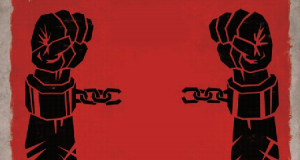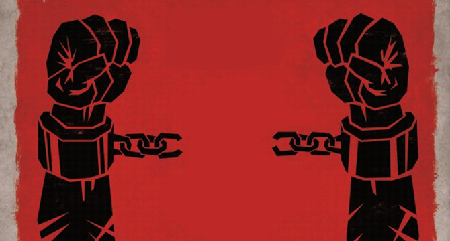 Since 1976, Lake Superior State University has compiled an annual list of words and phrases that its creators would like to expunge from the English language. When I first heard about the list, I was intrigued: as somebody who reviews others’ writing for a living, there are certainly some groaners for which I would pay any amount if it meant never seeing them again (two whole paychecks for “the reason is because,” no question).
Since 1976, Lake Superior State University has compiled an annual list of words and phrases that its creators would like to expunge from the English language. When I first heard about the list, I was intrigued: as somebody who reviews others’ writing for a living, there are certainly some groaners for which I would pay any amount if it meant never seeing them again (two whole paychecks for “the reason is because,” no question).
But really, I’m not one to advocate restraints on language. I look to no less an authority than Mikhail Bakhtin, who succinctly captures what makes language, in all its forms, precious:
“An utterance is never just a reflection or an expression of something already existing and outside it that is given and final. It always creates something that never existed before, something absolutely new and unrepeatable … But something created is always created out of something given (language, an observed phenomenon of reality, an experienced feeling, the speaking subject himself, something finalized in his world view, and so forth). What is given is completely transformed in what is created.” (from Speech Genres and Other Late Essays)
With that being said, I have no problem with including on the List of Banished Words the kinds of utterances that keep us from being precise. I certainly agree that “surreal” (2006) and “epic” (2011) belong to this category. However, I have serious issues with many of the words included, espcially in the lists of the last decade and a half.
You can notice an interesting trend browsing the Lake Superior list archives. As time has passed, the lists have drawn fewer entries from the soul-killing doublespeak we suffer through in our advertising, news-reporting, and the political sphere. Instead, the proposals have increasingly targeted the colloquial. Say what you want about phrases like “fail,” “bromance,” “sexting,” and even “ginormous,” I think they represent the adaptive power of language to describe new cultural phenomena and absorb new usages. Okay, so “YOLO” is kind of annoying when somebody tries using it in earnest, but you must admit it’s pretty emblematic of its milieu. What is downright inexcusable are LSSU’s calls in 2010 and 2011 to curtail new usages like “tweet” or “Facebook” and “Google” in their transitive verb form (as in “Facebook us” or “Let me Google that” [you’re probably thinking, “Yeah, Mark… we get it.”]).
To illustrate how reactionary LSSU’s lists have become, look at 1998’s proposed banishings. Iconic usages like “da bomb,” “my bad,” “talk to the hand,” and even “yadda yadda yadda” are all on the chopping block. This means two things. The 90’s must have been a miserable decade for prescriptive linguists everywhere, but by the same token, they were an awesome time for somebody with an open mind who was also working on a dictionary.
Bryan A. Garner was one of them, and his Dictionary of Modern American Usage, made famous by David Foster Wallace’s prolix but worthwhile review (especially if you enjoy fighting about language), achieves what Wallace calls its “democratic spirit.” To quote Wallace,
“It is indisputably easier to be dogmatic than democratic, especially about issues that are both vexed and highly charged. I submit further that the issues surrounding ‘correctness’ in contemporary American usage are both vexed and highly charged, and that the fundamental questions they involve are ones whose answers have to be ‘worked out’ instead of simply found.”
What that means, LSSU, is that you can’t just ban words because they irritate you. Odds are that those same snatches of language possess a real function in the communities that coined them and use them. It’s up to you, the outsider, to understand and appreciate those strange-sounding usages. I hope maybe then you’ll be able to see what’s unique and peculiar to your own linguistic community, and be inspired to preserve language in all its forms.

